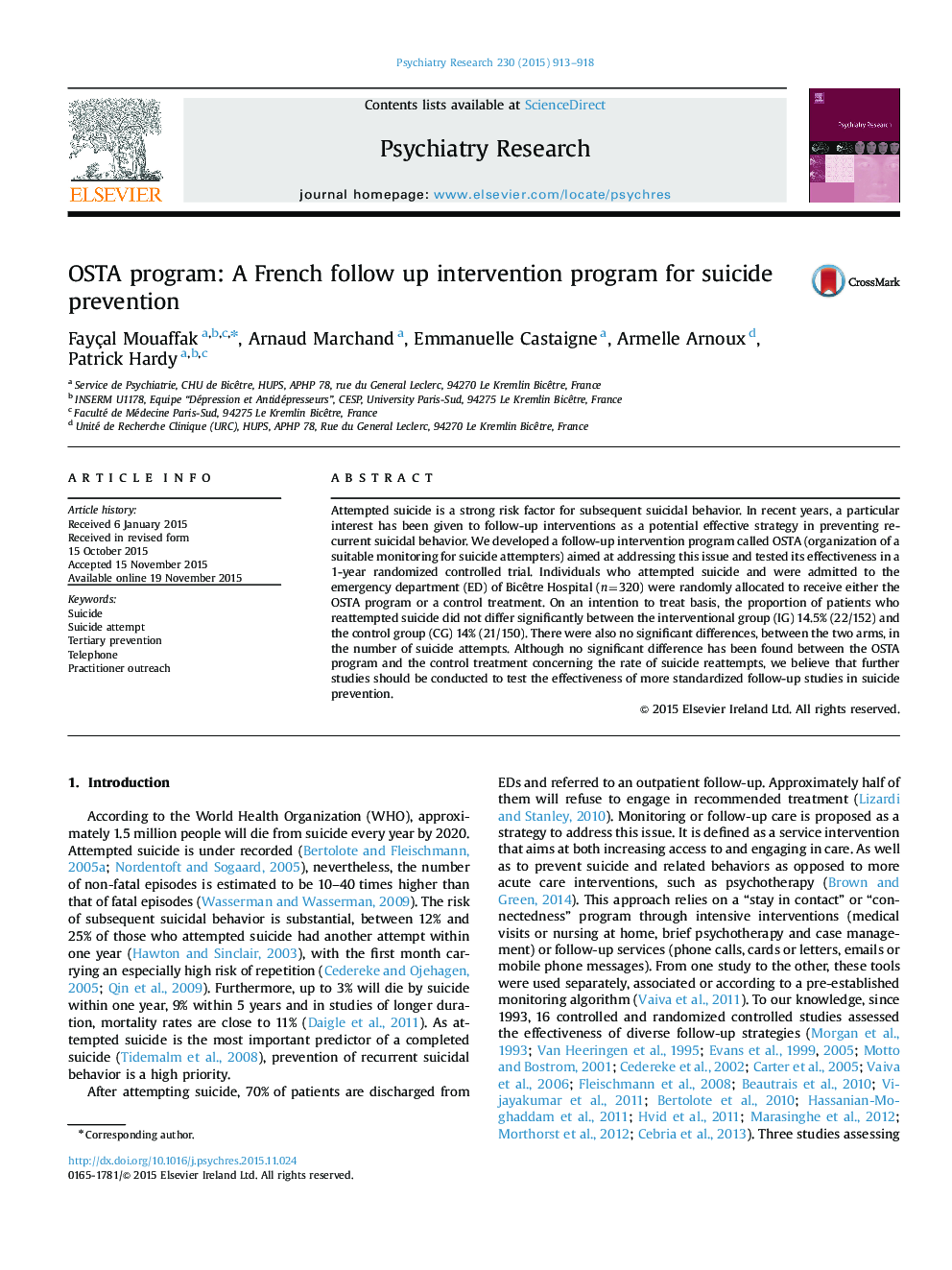| Article ID | Journal | Published Year | Pages | File Type |
|---|---|---|---|---|
| 6813883 | Psychiatry Research | 2015 | 6 Pages |
Abstract
Attempted suicide is a strong risk factor for subsequent suicidal behavior. In recent years, a particular interest has been given to follow-up interventions as a potential effective strategy in preventing recurrent suicidal behavior. We developed a follow-up intervention program called OSTA (organization of a suitable monitoring for suicide attempters) aimed at addressing this issue and tested its effectiveness in a 1-year randomized controlled trial. Individuals who attempted suicide and were admitted to the emergency department (ED) of Bicêtre Hospital (n=320) were randomly allocated to receive either the OSTA program or a control treatment. On an intention to treat basis, the proportion of patients who reattempted suicide did not differ significantly between the interventional group (IG) 14.5% (22/152) and the control group (CG) 14% (21/150). There were also no significant differences, between the two arms, in the number of suicide attempts. Although no significant difference has been found between the OSTA program and the control treatment concerning the rate of suicide reattempts, we believe that further studies should be conducted to test the effectiveness of more standardized follow-up studies in suicide prevention.
Related Topics
Life Sciences
Neuroscience
Biological Psychiatry
Authors
Fayçal Mouaffak, Arnaud Marchand, Emmanuelle Castaigne, Armelle Arnoux, Patrick Hardy,
